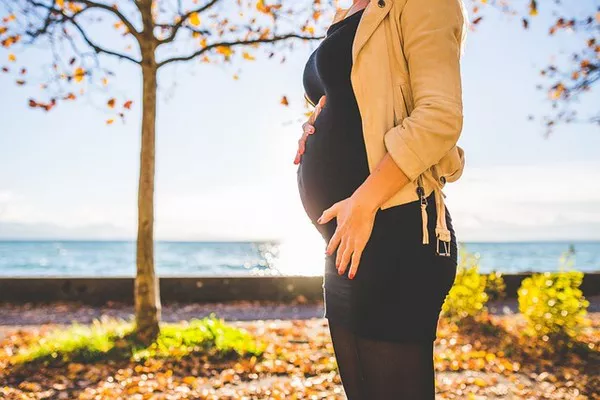Ectopic pregnancy, a potentially life-threatening condition, occurs when a fertilized egg implants and grows outside the uterus, most commonly in the fallopian tubes. As the pregnancy progresses, it can cause various symptoms, including cramps. Understanding the nature of ectopic pregnancy cramps, their symptoms, causes, and treatment options, is crucial for timely diagnosis and management of this serious medical condition.
Symptoms of Ectopic Pregnancy
Ectopic pregnancy cramps are often accompanied by other symptoms that indicate a problem with the pregnancy. Common symptoms include:
Abdominal Pain: Cramping or sharp, stabbing pain in the lower abdomen is a hallmark symptom of ectopic pregnancy. The pain may be localized on one side of the abdomen and may worsen with movement or physical activity.
Vaginal Bleeding: Light vaginal bleeding or spotting may occur in conjunction with ectopic pregnancy cramps. The bleeding may resemble a menstrual period or be lighter in intensity.
Shoulder Pain: In some cases, ectopic pregnancy can cause referred pain to the shoulder area. This occurs due to irritation of the diaphragm from internal bleeding.
Weakness and Dizziness: Internal bleeding from a ruptured ectopic pregnancy can lead to low blood pressure and symptoms of weakness, dizziness, or fainting.
Causes of Ectopic Pregnancy Cramps
Ectopic pregnancy cramps occur as a result of the growing embryo stretching the fallopian tube, causing pain and discomfort. Several factors contribute to the development of ectopic pregnancies, including:
Previous Pelvic Inflammatory Disease (PID): Infections of the reproductive organs, such as PID, can cause scarring and damage to the fallopian tubes, increasing the risk of ectopic pregnancy.
Previous Ectopic Pregnancy: Women who have experienced an ectopic pregnancy in the past are at higher risk of having another ectopic pregnancy.
Abnormal Fallopian Tube Structure: Structural abnormalities of the fallopian tubes, such as tubal adhesions or blockages, can interfere with the normal passage of the fertilized egg to the uterus, leading to ectopic pregnancy.
In vitro Fertilization (IVF): Assisted reproductive technologies, such as IVF, can increase the risk of ectopic pregnancy due to the manipulation of the reproductive organs.
Diagnosis of Ectopic Pregnancy Cramps
Prompt diagnosis of ectopic pregnancy is crucial to prevent complications such as fallopian tube rupture and internal bleeding. Healthcare providers may use a combination of medical history, physical examination, and diagnostic tests to confirm ectopic pregnancy, including:
Transvaginal Ultrasound: This imaging test allows healthcare providers to visualize the location of the pregnancy and determine if it is ectopic.
Blood Tests: Blood tests, including quantitative human chorionic gonadotropin (hCG) levels, can help monitor pregnancy hormone levels. In ectopic pregnancy, hCG levels may rise more slowly than expected or plateau.
Pelvic Exam: A pelvic examination may reveal tenderness or abnormal masses in the pelvic area, which may indicate ectopic pregnancy.
Treatment of Ectopic Pregnancy Cramps
The management of ectopic pregnancy depends on several factors, including the location and size of the ectopic pregnancy, the presence of symptoms, and the patient’s overall health. Treatment options may include:
Expectant Management: In some cases, ectopic pregnancies may resolve on their own without intervention. Healthcare providers may opt for expectant management, closely monitoring the patient’s condition with serial blood tests and ultrasound scans.
Medication: Methotrexate, a medication that stops the growth of rapidly dividing cells, may be prescribed to dissolve the ectopic pregnancy. This option is typically considered for stable patients with small ectopic pregnancies and declining hCG levels.
Surgery: Surgical intervention, such as laparoscopic salpingectomy or laparotomy, may be necessary to remove the ectopic pregnancy and repair any damage to the fallopian tube. In severe cases, emergency surgery may be required to address fallopian tube rupture and internal bleeding.
See Also: Ectopic Pregnancy: Causes, Symptoms, Diagnosis & Treatments
Conclusion
Ectopic pregnancy cramps are a significant symptom of this potentially life-threatening condition. Prompt recognition and diagnosis of ectopic pregnancy are essential for preventing complications and preserving reproductive health. If you experience symptoms of ectopic pregnancy, such as abdominal pain or vaginal bleeding, seek immediate medical attention to receive timely treatment and care. Early intervention can help minimize the risk of complications and improve outcomes for patients with ectopic pregnancy.
FAQs
Is ectopic pregnancy a medical emergency?
Yes, ectopic pregnancy is considered a medical emergency, especially if it leads to fallopian tube rupture and internal bleeding. Prompt medical attention is necessary to prevent complications and preserve reproductive health.
Can ectopic pregnancy cramps be managed at home?
It is not advisable to attempt to manage ectopic pregnancy cramps at home. If you experience symptoms suggestive of ectopic pregnancy, such as severe abdominal pain or vaginal bleeding, seek immediate medical attention for proper evaluation and treatment.
What are the long-term effects of ectopic pregnancy?
Long-term effects may include damage to the fallopian tubes, increased risk of future ectopic pregnancies, and emotional distress. Regular follow-up care and counseling may be recommended for women who have experienced ectopic pregnancy.
Can ectopic pregnancy cramps be prevented?
While ectopic pregnancy cannot always be prevented, certain risk factors, such as pelvic infections, can be minimized by practicing safe sex, undergoing regular gynecological exams, and seeking prompt treatment for any reproductive health concerns.


